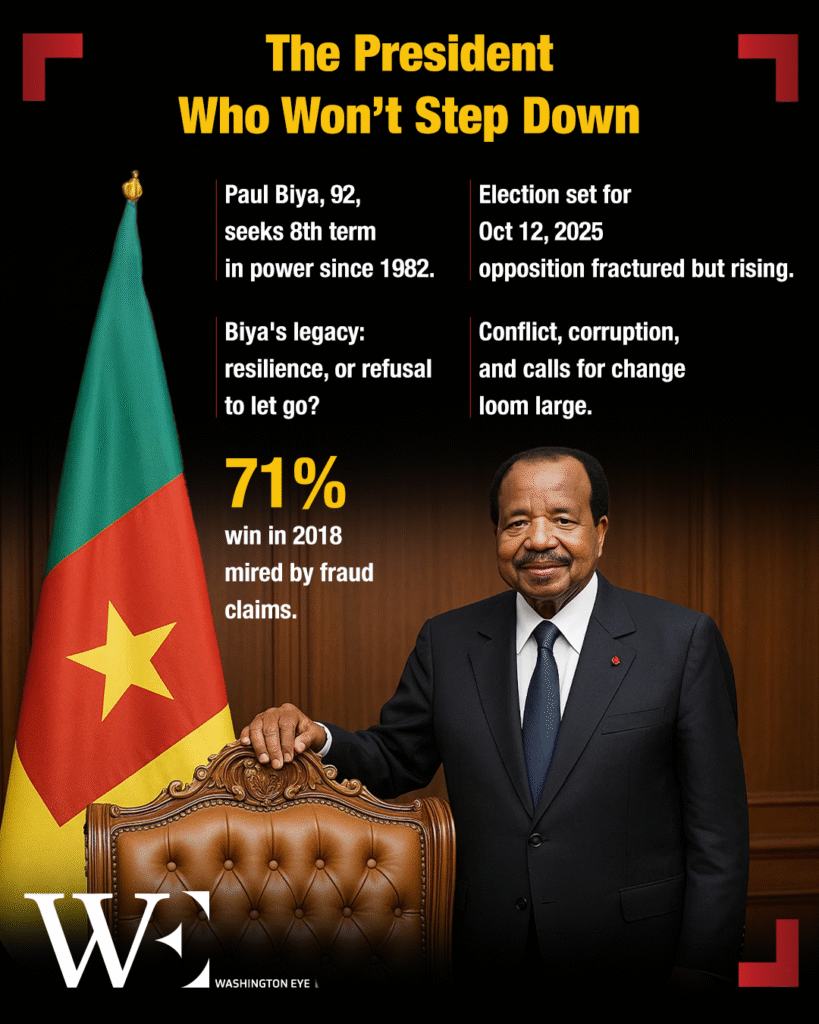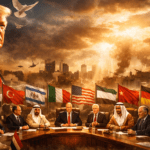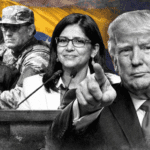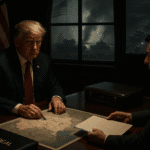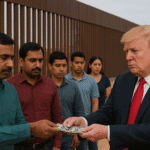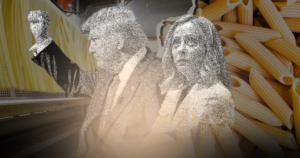On July 11, 2025, Cameroon’s incumbent President Paul Biya, aged 92 and the world’s oldest serving head of state, officially announced his candidacy for an unprecedented eighth term. The presidential election is scheduled for October 12, 2025, marking another chapter in Biya’s remarkable, decades-long rule since he first assumed office in 1982. Biya confirmed his candidacy through a social media post, expressing determination to continue serving amid the urgent challenges facing the country.
Cameroon’s presidential elections are held every seven years under a first-past-the-post voting system, where the candidate with the highest number of votes wins regardless of whether they secure an absolute majority. The election date was set by presidential decree earlier this month, with over seven million voters registered as of August 2024. Multiple candidates have emerged to challenge Biya, including Maurice Kamto, a prominent opposition leader and 2018 runner-up; Issa Tchiroma Bakary and Bello Bouba Maigari, former ministers turned opposition figures; Akere Muna, a noted anti-corruption advocate; and the younger Cabral Libii. Several of these contenders were once allied with Biya’s ruling party, the Cameroon People’s Democratic Movement (CPDM), but have since broken ranks, highlighting political fractures within the establishment.
Paul Biya’s longevity in power is extraordinary—he has governed Cameroon for more than 43 years, making him one of Africa’s longest-serving leaders. In 2008, a constitutional amendment removed term limits, clearing the way for Biya to continue running. His last election victory in 2018, where he secured over 71 percent of the vote, was marred by opposition claims of irregularities and voter suppression. Critics also raise concerns about Biya’s health, noting his advanced age and periods of prolonged absence from public view, including a 42-day disappearance from public events in 2024. Though government officials dismiss rumors about his health as unfounded, skepticism persists both domestically and internationally.
Cameroon faces significant challenges, including a protracted conflict in the English-speaking northwest and southwest regions, ongoing threats from Boko Haram in the north, economic struggles, and infrastructure deficiencies. These issues have fueled frustration and demands for political change among many citizens and opposition leaders. Human rights activists and civil society groups describe Cameroon’s political environment as an “electoral autocracy,” pointing to systemic harassment of opposition members and manipulation of electoral processes to entrench CPDM rule.
Despite concerns over Biya’s capacity to govern effectively at 92, he has shown no indication of stepping aside. Some observers suggest that the president now largely delegates responsibilities to his aides, maintaining symbolic control. Prominent figures, such as entrepreneur Rebecca Enonchong and human rights lawyer Alice Nkom, have publicly questioned Biya’s ability to lead, urging a transition to younger leadership that better represents Cameroon’s future.
The upcoming election will be a critical test for Cameroon’s democracy and stability. If Biya wins, he would extend his presidency into his late 90s, potentially making him the longest-ruling African head of state in history. Conversely, any serious challenge to his incumbency could trigger political instability, given the fragile state institutions and ongoing conflicts. Opposition candidates continue to campaign on platforms advocating for electoral reform, transparency, and peace, seeking to break the decades-long dominance of Biya and his party.
As the October 12 election approaches, both domestic observers and the international community will be watching closely. The results will not only determine the future leadership of Cameroon but also signal whether the country will pursue continuity under its historic ruler or embrace political renewal amid growing calls for change. With more than seven million registered voters poised to cast their ballots, this election promises to be a pivotal moment for Cameroon’s political trajectory.
